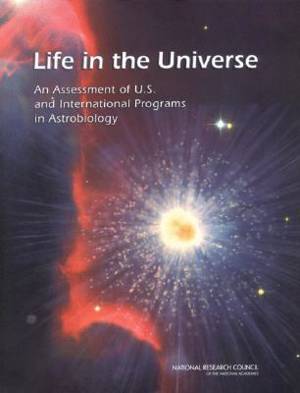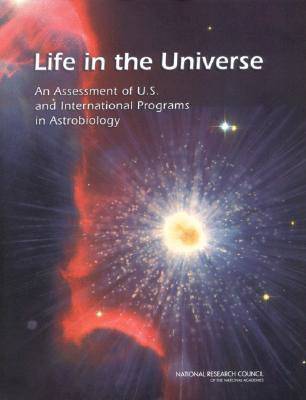
- Afhalen na 1 uur in een winkel met voorraad
- Gratis thuislevering in België vanaf € 30
- Ruim aanbod met 7 miljoen producten
- Afhalen na 1 uur in een winkel met voorraad
- Gratis thuislevering in België vanaf € 30
- Ruim aanbod met 7 miljoen producten
Life in the Universe
An Assessment of U.S. and International Programs in Astrobiology
National Research Council, Board on Life Sciences, Space Studies Board, Committee on the Origins and Evolution of LifeOmschrijving
The past decade has seen a remarkable revolution in genomic research, the discoveries of extreme environments in which organisms can live and even flourish on Earth, the identification of past and possibly present liquid-water environments in our solar system, and the detection of planets around other stars. Together these accomplishments bring us much closer to understanding the origin of life, its evolution and diversification on Earth, and its occurrence and distribution in the cosmos. A new multidisciplinary program called Astrobiology was initiated in 1997 by the National Aeronautics and Space Administration (NASA) to foster such research and to make available additional resources for individual and consortium-based efforts. Other agencies have also begun new programs to address the origin, evolution, and cosmic distribution of life. Five years into the Astrobiology program, it is appropriate to assess the scientific and programmatic impacts of these initiatives. Edward J. Weiler, NASA's associate administrator for the Office of Space Science, tasked the Committee on the Origins and Evolution of Life (COEL) with assessing the state of NASA's Astrobiology program.
Specificaties
Betrokkenen
- Auteur(s):
- Uitgeverij:
Inhoud
- Aantal bladzijden:
- 62
- Taal:
- Engels
Eigenschappen
- Productcode (EAN):
- 9780309084963
- Verschijningsdatum:
- 14/05/2003
- Uitvoering:
- Paperback
- Formaat:
- Trade paperback (VS)
- Afmetingen:
- 216 mm x 279 mm

Alleen bij Standaard Boekhandel
Beoordelingen
We publiceren alleen reviews die voldoen aan de voorwaarden voor reviews. Bekijk onze voorwaarden voor reviews.











